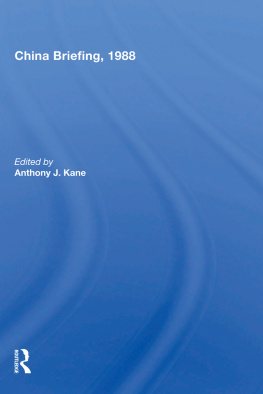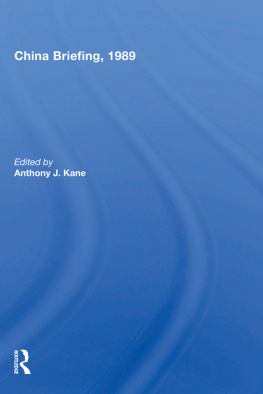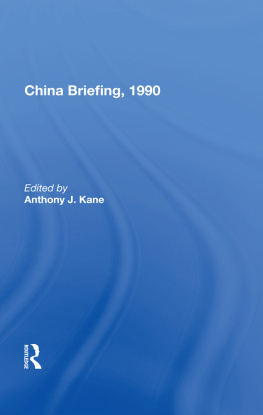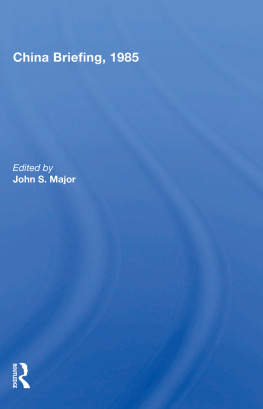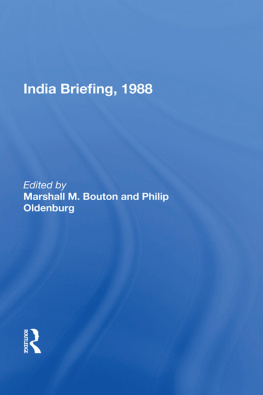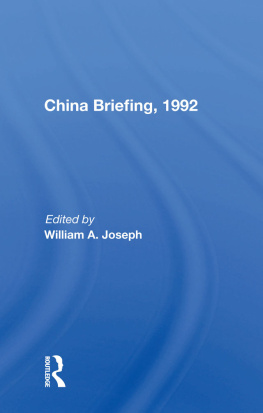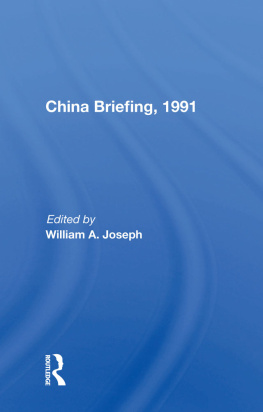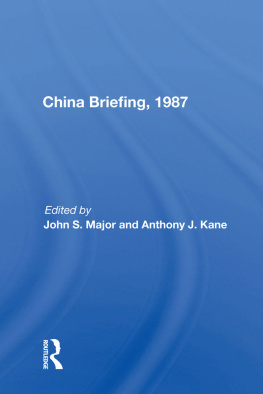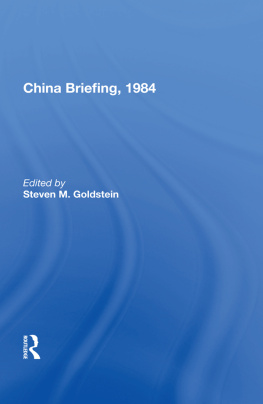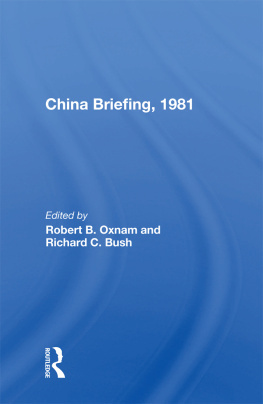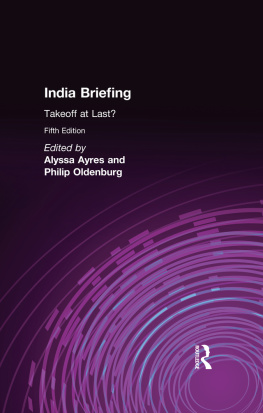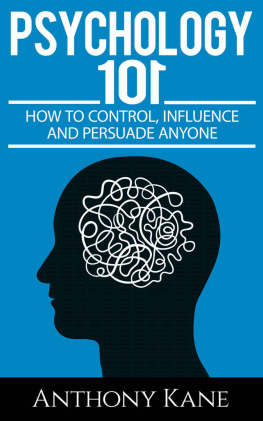China Briefing, 1988
edited by
Anthony J. Kane
Published in cooperation with the China Council of The Asia Society
First published 1988 by Westview Press
Published 2018 by Routledge
52 Vanderbilt Avenue, New York, NY 10017
2 Park Square, Milton Park, Abingdon, Oxon OX14 4RN
Routledge is an imprint of the Taylor & Francis Group, an informa business
Copyright 1988 by The Asia Society
All rights reserved. No part of this book may be reprinted or reproduced or utilised in any form or by any electronic, mechanical, or other means, now known or hereafter invented, including photocopying and recording, or in any information storage or retrieval system, without permission in writing from the publishers.
Notice:
Product or corporate names may be trademarks or registered trademarks, and are used only for identification and explanation without intent to infringe.
Library of Congress ISSN: 0740-8005
ISBN 13: 978-0-367-00320-3 (hbk)
Many Chinese welcomed 1988, the year of the dragon, with a sense of confidence and even optimism. Newly elected Party Chief Zhao Ziyang stood at the head of a rejuvenated leadership, ready to press forward with a new agenda of economic and political reform even more far-reaching than those already implemented in the nearly ten years since the historic "Third Plenum" of 1978. Dissident astrophysicist Fang Lizhi was speaking out boldly in favor of even greater liberalization, and investigative journalist Liu Binyan was preparing for a year of teaching and research in the United States.
It Is easy to forget that a year earlier Fang and Liu had been summarily expelled from the Chinese Communist Party and that Zhao's predecessor, Hu Yaobang, had been forced to resign. The vicissitudes of Chinese politics are often more conducive to caution than to confidence. Both attitudes are reflected in the pages of China Briefing, 1988.
As in the past, the present volume contains updates on events in the realms of politics, the economy, foreign relations, and culture in the People's Republic of China. This year we include chapters on students and developments in the legal system, topics we felt to be especially timely in the light of the events of the previous year. All chapters were specially commissioned for this book.
China Briefing also covers Hong Kong and Taiwan, and because events in both of these regions were so dramatic, this year's edition includes a chapter highlighting both the British colony's preparations for reintegration into China and Taiwan's own reform initiatives in the wake of the lifting of martial law.
The China Council, a program of The Asia Society's Contemporary Affairs Department, is a nonprofit, nonpartisan education organization committed to providing to the American public timely and acurate information on China and U.S.-China relations. Through the publication of an annual China Briefing , the China Council attempts to disseminate to the widest possible audience a digest of essential information on events in China during the previous year. The editor hopes that students, businesspeople, policymakers, travelers, and others who require up-to-the-minute information on China will find each year's China Briefing well suited to their needs.
The editor wishes to thank all of the authors for their efforts in preparing manuscripts on a tight schedule. Thanks also to the staff of the Contemporary Affairs Department who worked so hard to produce this volume: Linda Griffin Kean, whose editorial efforts as always go above and beyond the call of her duties as Publications Associate; Patricia Binns, who prepared the chronology; Andrea Sokerka and Susannah Smith, who shepherded the manuscript through the publications process; and Stephanie Paul and Patricia Farr, whose word-processing skills were indispensible. And to Susan McEachern of Westview Press, most patient of taskmasters, thanks again.
Anthony }. Kane

1987: Politics Back in Command
Anthony J. Kane
Chinese politics in 1987 was like the old Peace Corps ad in which one was challenged to say whether the glass of water was half empty or half full. Pessimists could point to the forced resignation of Chinese Communist Party General Secretary Hu Yaobang in January, the periodic purges of liberal intellectuals, and the year-end trial of Yang Wei, a student arrested for his role in the demonstrations of the previous year. Optimists could point to the appointment of Zhao Ziyang to replace Hu, the rapid reemergence of most of the intellectuals who were purged, and the relatively light sentence Yang Wei received (two years according to the December 22, 1987, New York Times ). Ten years from now we might have some sense of who was right. If the reformers can maintain economic growth and tolerate continued political liberalization, the Thirteenth Party Congress of October 1987 will likely be considered to have been as important a turning point as the now-famous "Third Plenum" of December 1978; if the economy stagnates and political freedoms are again curtailed, those who compare the purges of 1987 to the Anti-Rightist Campaign of 30 years ago may be seen to be justified.
In this chapter our goal will be simply to try to understand the dynamics of the year itself. How is it that the resignation of Hu Yao-bang in January led not to his own removal from the Politburo but to the removal of his chief adversary and would-be successor Deng Liqun? How is it that the push for political reform which seemed to blow up in Hu's face in January came to be reaffirmed at the Thirteenth Party Congress in October? Will the Congress prove to be (as some have called it) a "Congress of Victory" for Deng Xiaoping and his heir apparent, Zhao Ziyang, the way the Seventh Party Congress was for Mao Zedong in 1945? What are the challenges that lay ahead, and how well prepared is China's political system to meet them?
We should note here that labels used in this essay like "liberal," "conservative," and "reformer" are often confusing, misleading, or overly simplistic when applied to contemporary Chinese politics, but they do have some meaning if defined and used consistently. There is clearly a wide consensus behind the general notion of reform in China, and in that sense everyone is a reformer. Here, however, the term refers to people like Zhao Ziyang and, as I argue, Deng himselfpeople in the leadership who have set the pace of reform over the past decade and who appear to remain more or less in control at this time. "Liberal" refers to people like Liu Binyan and Fang Lizhi who have tended to be out in front of the leadership, demanding that the reforms be pushed even faster and further. "Conservative" refers to people like Chen Yun and Deng Liqun who have sought in various ways to slow the current pace of change or even to reverse some of the reforms already implemented. The use of these labels should not be taken to imply that there are not serious differences among the members of these groups or that individuals do not take "liberal" stands on some issues and "conservative" stands on others. In general I find these terms more useful than, for example, identifying the conservatives as "leftists" because they seek to reverse some of the current reforms, reforms which themselves are "rightist" by "Maoist" standards. Few of the so-called conservatives would actively advocate going back to the "good old days" of the Cultural Revolution, even though their actions sometimes seem to indicate that may be their intent.







